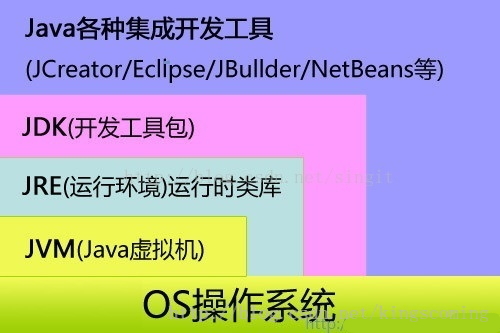etcd 是一个分布式一致性k-v存储系统,可用于服务注册发现与共享配置
如果是线下或者实验环境,部署一台etcd即可。生产环境则需要考虑高可用,3台或者5台进行集群部署,以3台为例:
下载地址:https://github.com/etcd-io/etcd/releases
安装方式有两种,一种是下载完整二进制包,但是里面没有标准的配置模板,有些文档。另外是yum安装,centos7已经支持到3.2.22了。
关于配置文件和系统启动脚本都可以参考yum安装之后的文件,然后下载自己需要的版本的二进制包即可。
ETCD读写性能
按照官网给出的[Benchmark], 在2CPU,1.8G内存,SSD磁盘这样的配置下,单节点的写性能可以达到16K QPS, 而先写后读也能达到12K QPS。这个性能还是相当可观的。
[root@node01 ~]# grep -v '^#' /etc/etcd/etcd.conf ETCD_DATA_DIR="/var/lib/etcd/default.etcd" ETCD_LISTEN_CLIENT_URLS="http://localhost:2379" ETCD_NAME="default" ETCD_ADVERTISE_CLIENT_URLS="http://localhost:2379" 把相关值改成实际环境:[单机环境这几个参数为必选] ETCD_NAME="etcd01" ETCD_DATA_DIR="/var/lib/etcd/" ETCD_LISTEN_CLIENT_URLS="http://0.0.0.0:2379" ETCD_ADVERTISE_CLIENT_URLS="http://localhost:2379"
默认2379是对外开放服务端口,2380则是etcd集群部署内部通信端口,比如选举时。
启动脚本:注意配置文件路径与data dir的目录要和启动脚本里的保持一致
注意启动用户,如果是etcd则对/var/lib/etcd/目录进行权限修改。
[root@node01 ~]# cat /usr/lib/systemd/system/etcd.service
[Unit]
Description=Etcd Server
After=network.target
After=network-online.target
Wants=network-online.target
[Service]
Type=notify
WorkingDirectory=/var/lib/etcd/
EnvironmentFile=-/etc/etcd/etcd.conf
User=etcd
# set GOMAXPROCS to number of processors
# ExecStart=/bin/bash -c "GOMAXPROCS=$(nproc) /usr/bin/etcd --name=\"${ETCD_NAME}\" --data-dir=\"${ETCD_DATA_DIR}\" --listen-client-urls=\"${ETCD_LISTEN_CLIENT_URLS}\""
ExecStart=/usr/bin/etcd
Restart=on-failure
LimitNOFILE=65536
[Install]
WantedBy=multi-user.targetuseradd -s /sbin/nologin etcd mkdir -p /var/lib/etcd chown -R etcd.etcd /var/lib/etcd systemctl daemon-reload systemctl start etcd systemctl enable etcd
[root@etcd01 ~]# etcdctl mkdir /nianzong [root@etcd01 ~]# etcdctl mk /nianzong/foo 'bar' bar [root@etcd01 ~]# etcdctl get /nianzong/foo bar
2. etcd集群部署:
当可以预估etcd集群的使用量以及明确知道集群的成员的时候,可以静态方式部署集群。但大部分情况下这两个无法确定的时候,可以使用动态方式部署集群。
etcd.conf配置:
[root@etcd03 ~]# cat /etc/etcd/etcd.conf ETCD_NAME="etcd03" ETCD_DATA_DIR="/var/lib/etcd" ETCD_LISTEN_CLIENT_URLS="http://192.168.10.107:2379,http://127.0.0.1:2379" ETCD_ADVERTISE_CLIENT_URLS="http://192.168.10.107:2379" # cluster : ETCD_LISTEN_PEER_URLS="http://192.168.10.107:2380" ETCD_INITIAL_ADVERTISE_PEER_URLS="http://192.168.10.107:2380" ETCD_INITIAL_CLUSTER="etcd01=http://192.168.10.105:2380,etcd02=http://192.168.10.106:2380,etcd03=http://192.168.10.107:2380" ETCD_INITIAL_CLUSTER_STATE="new" ETCD_INITIAL_CLUSTER_TOKEN="nianzong-etcd-cluster"
跟集群有关的参数说明一下:
initial-cluster-state说明单节点启动时候的状态,第一次的时候可以设置为new,以后节点重启时这个参数值改为 existing;
initial-cluster列出了cluster的初始成员,cluster启动后可通过命令 etcdctl member update 进行更改;
initial-cluster-token用于标识集群的名称,initial-cluster则给出了静态cluster的各个成员的名称以及地址
选举之后的几种角色:
leader-相当于主节点
candidate-似乎是成为leader之前的过度角色
follower- 除了称为leader之外最终都会称为follower
启动脚本实际上跟单机部署脚本是一样的
[root@etcd03 ~]# cat /usr/lib/systemd/system/etcd.service [Unit] Description=Etcd Server After=network.target After=network-online.target Wants=network-online.target [Service] Type=notify WorkingDirectory=/var/lib/etcd/ EnvironmentFile=-/etc/etcd/etcd.conf User=etcd # set GOMAXPROCS to number of processors ExecStart=/usr/bin/etcd Restart=on-failure LimitNOFILE=65536 [Install] WantedBy=multi-user.target
# 每个节点上都可以查看集群成员状态: [root@etcd01 ~]# etcdctl member list 2693e19032c4f545: name=etcd02 peerURLs=http://192.168.10.106:2380 clientURLs=http://192.168.10.106:2379 isLeader=false 71c371de4823cb8a: name=etcd03 peerURLs=http://192.168.10.107:2380 clientURLs=http://192.168.10.107:2379 isLeader=false 924dd8784841a270: name=etcd01 peerURLs=http://192.168.10.105:2380 clientURLs=http://192.168.10.105:2379 isLeader=true # 查看集群健康状态: [root@etcd01 ~]# etcdctl cluster-health member 2693e19032c4f545 is healthy: got healthy result from http://192.168.10.106:2379 member 71c371de4823cb8a is healthy: got healthy result from http://192.168.10.107:2379 member 924dd8784841a270 is healthy: got healthy result from http://192.168.10.105:2379 cluster is healthy
etcdctl member list
etcdctl cluster-health #集群健康状态检查
curl http://192.168.10.106:2379/health #单独查看某个成员健康状态
[root@node01 ~]# for h in etcd01 etcd02 etcd03;do curl -s http://$h:2379/health|xargs printf "$h %s %s\n";done
etcd01 {health: true}
etcd02 {health: true}
etcd03 {health: true}[root@etcd01 ~]# etcdctl ls / [root@etcd01 ~]# etcdctl mk /www 'pyops.net' pyops.net [root@etcd01 ~]# etcdctl ls / /www [root@etcd01 ~]# etcdctl get www pyops.net
然后到etcd02/etcd03上进行查询,验证数据是否同步:
# etcd02: [root@etcd02 ~]# etcdctl ls / [root@etcd02 ~]# etcdctl ls / /www [root@etcd02 ~]# etcdctl get /www pyops.net # etcd03: [root@etcd03 ~]# etcdctl get /www pyops.net
2)在非leader节点上进行写操作:
# 在etcd02上添加k/v: [root@etcd02 ~]# etcdctl mk /etcd02 'write in etcd02' write in etcd02 [root@etcd01 ~]# etcdctl get /etcd02 write in etcd02 [root@etcd03 ~]# etcdctl get /etcd02 write in etcd02 # 在etcd03上添加k/v: [root@etcd03 ~]# etcdctl mk /etcd03 'write in etcd03' write in etcd03 [root@etcd02 ~]# etcdctl get /etcd03 write in etcd03 [root@etcd01 ~]# etcdctl get /etcd03 write in etcd03 实验过程可以证明数据同步应该是毫秒级别,对于K8S应用来说足以应对。
# 每个节点上都可以查看集群成员状态: [root@etcd01 ~]# etcdctl member list 2693e19032c4f545: name=etcd02 peerURLs=http://192.168.10.106:2380 clientURLs=http://192.168.10.106:2379 isLeader=false 71c371de4823cb8a: name=etcd03 peerURLs=http://192.168.10.107:2380 clientURLs=http://192.168.10.107:2379 isLeader=false 924dd8784841a270: name=etcd01 peerURLs=http://192.168.10.105:2380 clientURLs=http://192.168.10.105:2379 isLeader=true [root@etcd02 ~]# etcdctl member list 2693e19032c4f545: name=etcd02 peerURLs=http://192.168.10.106:2380 clientURLs=http://192.168.10.106:2379 isLeader=false 71c371de4823cb8a: name=etcd03 peerURLs=http://192.168.10.107:2380 clientURLs=http://192.168.10.107:2379 isLeader=false 924dd8784841a270: name=etcd01 peerURLs=http://192.168.10.105:2380 clientURLs=http://192.168.10.105:2379 isLeader=true [root@etcd03 ~]# etcdctl member list 2693e19032c4f545: name=etcd02 peerURLs=http://192.168.10.106:2380 clientURLs=http://192.168.10.106:2379 isLeader=false 71c371de4823cb8a: name=etcd03 peerURLs=http://192.168.10.107:2380 clientURLs=http://192.168.10.107:2379 isLeader=false 924dd8784841a270: name=etcd01 peerURLs=http://192.168.10.105:2380 clientURLs=http://192.168.10.105:2379 isLeader=true # 查看集群健康状态: [root@etcd01 ~]# etcdctl cluster-health member 2693e19032c4f545 is healthy: got healthy result from http://192.168.10.106:2379 member 71c371de4823cb8a is healthy: got healthy result from http://192.168.10.107:2379 member 924dd8784841a270 is healthy: got healthy result from http://192.168.10.105:2379 cluster is healthy [root@etcd02 ~]# etcdctl cluster-health member 2693e19032c4f545 is healthy: got healthy result from http://192.168.10.106:2379 member 71c371de4823cb8a is healthy: got healthy result from http://192.168.10.107:2379 member 924dd8784841a270 is healthy: got healthy result from http://192.168.10.105:2379 cluster is healthy [root@etcd03 ~]# etcdctl cluster-health member 2693e19032c4f545 is healthy: got healthy result from http://192.168.10.106:2379 member 71c371de4823cb8a is healthy: got healthy result from http://192.168.10.107:2379 member 924dd8784841a270 is healthy: got healthy result from http://192.168.10.105:2379 cluster is healthy
节点删除
[root@etcd01 ~]# etcdctl member remove 71c371de4823cb8a Removed member 71c371de4823cb8a from cluster [root@etcd01 ~]# etcdctl member list 2693e19032c4f545: name=etcd02 peerURLs=http://192.168.10.106:2380 clientURLs=http://192.168.10.106:2379 isLeader=false 924dd8784841a270: name=etcd01 peerURLs=http://192.168.10.105:2380 clientURLs=http://192.168.10.105:2379 isLeader=true 执行remove其实就是向改节点发送服务停止的指令,并将节点从列表中删除。此时去对应节点查看服务状态显示stop
添加节点:
[root@etcd01 ~]# etcdctl member add etcd03 http://192.168.10.107:2380 Added member named etcd03 with ID 608f768e1268b434 to cluster ETCD_NAME="etcd03" ETCD_INITIAL_CLUSTER="etcd02=http://192.168.10.106:2380,etcd03=http://192.168.10.107:2380,etcd01=http://192.168.10.105:2380" ETCD_INITIAL_CLUSTER_STATE="existing" [root@etcd01 ~]# etcdctl member list 2693e19032c4f545: name=etcd02 peerURLs=http://192.168.10.106:2380 clientURLs=http://192.168.10.106:2379 isLeader=false 608f768e1268b434[unstarted]: peerURLs=http://192.168.10.107:2380 924dd8784841a270: name=etcd01 peerURLs=http://192.168.10.105:2380 clientURLs=http://192.168.10.105:2379 isLeader=true [root@etcd03 ~]# rm -fr /var/lib/etcd/member/* [root@etcd03 ~]# systemctl start etcd # 如果之前节点已经启动过,记得删除数据再启动,否则起不来 rm -fr /var/lib/etcd/member/*
注意:如果etcd服务不开启双向证书认证,那么运维/dba要严格控制好etcd服务器的登录访问权限。
ETCD采用证书认证方式部署
[root@master01 ssl]# cat create-etcd.sh
#!/bin/bash
# Author:daihaijun
cd /root/k8s/ssl
# 创建证书签名请求
cat > etcd-csr.json << EOF
{
"CN": "etcd",
"hosts": [
"127.0.0.1",
"192.168.10.105",
"192.168.10.106",
"192.168.10.107"
],
"key": {
"algo": "rsa",
"size": 2048
},
"names": [
{
"C": "CN",
"L": "Hangzhou",
"ST": "ZJ",
"O": "k8s",
"OU": "System"
}
]
}
EOF
# 生成证书和私钥
cfssl gencert -ca=ca.pem -ca-key=ca-key.pem -config=ca-config.json -profile=kubernetes etcd-csr.json | cfssljson -bare etcd
# check pem
echo "=====确认证书内容属性!!!====="
openssl x509 -noout -text -in etcd.pem|egrep "Issuer:|Subject:|DNS"hosts 字段指定授权使用该证书的 etcd 节点 IP 或域名列表,这里将 etcd 集群的三个节点 IP 都列在其中;127.0.0.1可用于本地测试
除了CN名称,其他信息保持跟kubectl/master等相同
分发证书和私钥到各个etcd节点:[不要忘了ca证书]
[root@master01 ssl]# for host in etcd01 etcd02 etcd03;do scp ca.pem etcd-key.pem etcd.pem $host:/etc/kubernetes/ssl/;done
[root@etcd03 system]# cat /etc/etcd/etcd.conf #[member] ETCD_NAME="etcd03" ETCD_DATA_DIR="/var/lib/etcd" ETCD_LISTEN_CLIENT_URLS="https://192.168.10.107:2379,https://127.0.0.1:2379" #[cluster] ETCD_ADVERTISE_CLIENT_URLS="https://192.168.10.107:2379" ETCD_LISTEN_PEER_URLS="https://192.168.10.107:2380" ETCD_INITIAL_ADVERTISE_PEER_URLS="https://192.168.10.107:2380" ETCD_INITIAL_CLUSTER="etcd01=https://192.168.10.105:2380,etcd02=https://192.168.10.106:2380,etcd03=https://192.168.10.107:2380" ETCD_INITIAL_CLUSTER_STATE="new" ETCD_INITIAL_CLUSTER_TOKEN="nianzong-etcd-cluster" #[security] CLIENT_CERT_AUTH="true" ETCD_CERT_FILE="/etc/kubernetes/ssl/etcd.pem" ETCD_KEY_FILE="/etc/kubernetes/ssl/etcd-key.pem" ETCD_TRUSTED_CA_FILE="/etc/kubernetes/ssl/ca.pem" ETCD_PEER_CERT_FILE="/etc/kubernetes/ssl/etcd.pem" ETCD_PEER_KEY_FILE="/etc/kubernetes/ssl/etcd-key.pem" ETCD_PEER_CLIENT_CERT_AUTH="true" ETCD_PEER_TRUSTED_CA_FILE="/etc/kubernetes/ssl/ca.pem"
--client-cert-auth: When this is set etcd will check all incoming HTTPS requests for a client certificate signed by the trusted CA, requests that don't supply a valid client certificate will fail. If authentication is enabled, the certificate provides credentials for the user name given by the Common Name field.--peer-client-cert-auth: When set, etcd will check all incoming peer requests from the cluster for valid client certificates signed by the supplied CA.
将配置同步到其他etcd节点,并修改ip地址即可。参考:https://coreos.com/etcd/docs/latest/v2/security.html
systemd文件:
[root@etcd03 system]# cat etcd.service [Unit] Description=Etcd Server After=network.target After=network-online.target Wants=network-online.target [Service] Type=notify WorkingDirectory=/var/lib/etcd/ EnvironmentFile=-/etc/etcd/etcd.conf User=root # set GOMAXPROCS to number of processors ExecStart=/bin/bash -c "GOMAXPROCS=$(nproc) /usr/bin/etcd" Restart=on-failure LimitNOFILE=65536 [Install] WantedBy=multi-user.target
for etcd_svr in etcd01 etcd02 etcd03;do (ssh $etcd_svr "systemctl daemon-reload && systemctl enable etcd && systemctl start etcd") & done wait for etcd_svr in etcd01 etcd02 etcd03;do echo "===$etcd_svr===" ssh $etcd_svr "systemctl status etcd" done
查看集群状态:
[root@etcd03 system]# etcdctl --ca-file=/etc/kubernetes/ssl/ca.pem --cert-file=/etc/kubernetes/ssl/etcd.pem --key-file=/etc/kubernetes/ssl/etcd-key.pem --endpoints=https://127.0.0.1:2379/ cluster-health member 12b8881fd61b4ada is healthy: got healthy result from https://192.168.10.105:2379 member 5dd60f65dbd70740 is healthy: got healthy result from https://192.168.10.107:2379 member f1c6a878c78e49eb is healthy: got healthy result from https://192.168.10.106:2379 cluster is healthy [root@etcd03 system]# etcdctl --ca-file=/etc/kubernetes/ssl/ca.pem --cert-file=/etc/kubernetes/ssl/etcd.pem --key-file=/etc/kubernetes/ssl/etcd-key.pem --endpoints=https://127.0.0.1:2379/ member list 12b8881fd61b4ada: name=etcd01 peerURLs=https://192.168.10.105:2380 clientURLs=https://192.168.10.105:2379 isLeader=true 5dd60f65dbd70740: name=etcd03 peerURLs=https://192.168.10.107:2380 clientURLs=https://192.168.10.107:2379 isLeader=false f1c6a878c78e49eb: name=etcd02 peerURLs=https://192.168.10.106:2380 clientURLs=https://192.168.10.106:2379 isLeader=false
使用证书认证之后,客户端访问每次都必须带上证书,非常麻烦,后续文章会分享一个小技巧。
查询apiserver写入到etcd集群的数据:
这里需要注意的是,etcd的api目前有v2和v3两个版本,两个版本之间是看不到数据的。kubernetes使用的是v3,所以使用etcdctl ls /去查询是看不到有/registry目录的。
切换到v3:export ETCDCTL_API=3etcdctl get / --prefix --keys-only[V3不支持etcdctl ls反倒没那么方便了]
etcdctl3 version










还没有评论,来说两句吧...